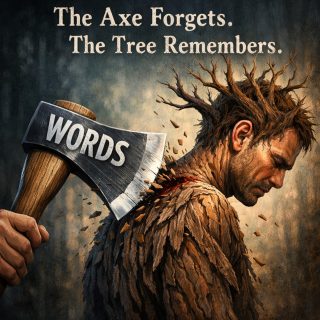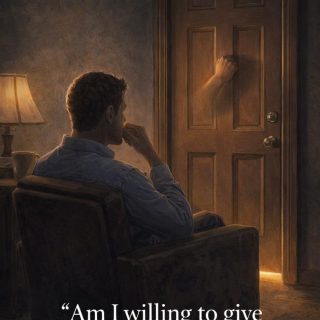
A healthy society is not merely an abstract ideal; it is a tangible reality built on shared values, mutual respect, and equality. Equality is not just a moral imperative but the cornerstone of stability, progress, and peace. When equality is upheld, societies thrive. When it is broken, the consequences ripple through every aspect of life, often leading to the very instability and suffering that the perpetrators of inequality sought to avoid.
The Role of Equality in Society
Equality fosters trust, cooperation, and a sense of belonging among members of a community. When individuals feel they are treated fairly, they are more likely to contribute positively to society. Conversely, inequality breeds resentment, division, and conflict, creating fractures that can destabilize even the most prosperous nations.
Key Aspects of Equality in Society:
- Economic Equality: Fair distribution of wealth reduces poverty and minimizes the gap between the rich and the poor.
- Social Equality: Equal rights and opportunities eliminate discrimination and provide a level playing field for everyone.
- Legal Equality: Justice that applies equally to all fosters confidence in institutions and ensures accountability.
When these aspects are upheld, a society becomes resilient and harmonious. However, when individuals or groups deliberately disrupt this balance, they often invite the very consequences they sought to impose on others.
The Reciprocity of Actions: A Warning Against Breaking the Balance
The principle of reciprocity—“what you do unto others will eventually be done unto you”—is deeply embedded in human morality and history. Societies and individuals that exploit, oppress, or marginalize others often find themselves facing the repercussions of their actions. This is not merely a philosophical observation; it is a recurring theme in history and human behavior.
Historical Lessons
- The Fall of Empires: Many empires, from ancient Rome to colonial powers, collapsed under the weight of their own inequalities. Exploiting marginalized groups for labor or resources often led to uprisings, internal dissent, and eventual downfall.
- Civil Rights Movements: Discrimination and segregation in societies have led to transformative movements. The oppressed have risen to demand their rights, forcing those in power to confront the injustices they perpetuated.
- Economic Inequalities: Wealth hoarding and economic exploitation often lead to economic crises, as seen in the Great Depression or modern-day recessions triggered by unchecked greed.
These examples illustrate that breaking the balance of equality invites instability and, often, retribution. The oppressed do not remain silent forever, and history has shown time and again that societies ignoring this truth suffer in turn.
The Smack-Back Effect: Equality in Personal Relationships
Imagine this scenario: you are having a disagreement with someone. Frustration boils over, and you smack them. By doing so, you have not only hurt them but also implicitly set a precedent—you’ve communicated that physical retaliation is acceptable in this relationship. Now, the person you smacked has a choice: to accept this treatment quietly or to respond in kind. If they choose the latter, they smack you back, escalating the conflict.
By initiating harm, you shift the relationship dynamic from one of mutual respect to one where retaliation becomes a valid response. This sets off a chain reaction, normalizing harm as part of your interactions. Over time, this spirals out of control as each party feels justified in escalating the conflict further.
Giving a Permit to Harm
When you harm someone, you implicitly give them permission to harm you back. This “permit” is not formal or spoken but understood. You’ve communicated that actions like smacking, yelling, or hurting are acceptable ways to resolve issues. This opens the door to:
- Retaliation: The other person feels justified in responding with equal or greater harm.
- Escalation: Each act of harm invites a more severe response, leading to a breakdown in trust and stability.
- Cultural Precedent: In a wider context, this behavior normalizes conflict as a means of addressing grievances, perpetuating cycles of violence.
Why It Spirals Out of Control
The reason this dynamic often escalates is that harm begets harm. The more you retaliate, the more the other person feels justified in responding. This creates a feedback loop, eroding the foundations of the relationship or community. Breaking this cycle requires a conscious effort to restore balance and mutual respect.
The Moral and Practical Case for Equality
The argument for equality is not only ethical but practical. Treating others as we wish to be treated ensures the collective well-being of society. Building a culture of fairness, respect, and inclusivity strengthens the bonds that hold communities together. This requires:
- Education: Teaching the value of equality from an early age fosters empathy and understanding.
- Policies: Enforcing laws and regulations that ensure fairness in workplaces, schools, and public institutions.
- Awareness: Promoting conversations about the importance of equality and the dangers of its absence.
By embracing equality, we prevent the destructive dynamics of retaliation and escalation that harm both individuals and societies.
Conclusion: Equality Is a Collective Responsibility
When you break the balance of equality—whether by smacking someone, oppressing a group, or exploiting resources—you open the door for retaliation and instability. Equality, on the other hand, keeps relationships and societies in harmony. It ensures mutual respect, prevents harm, and allows conflicts to be resolved peacefully.
Ultimately, equality is not just a moral virtue but a safeguard against chaos. It is the foundation of trust, the key to stability, and the promise of a better future. By choosing equality in our actions and relationships, we create a world where harm is unnecessary, and fairness is the guiding principle for all.



